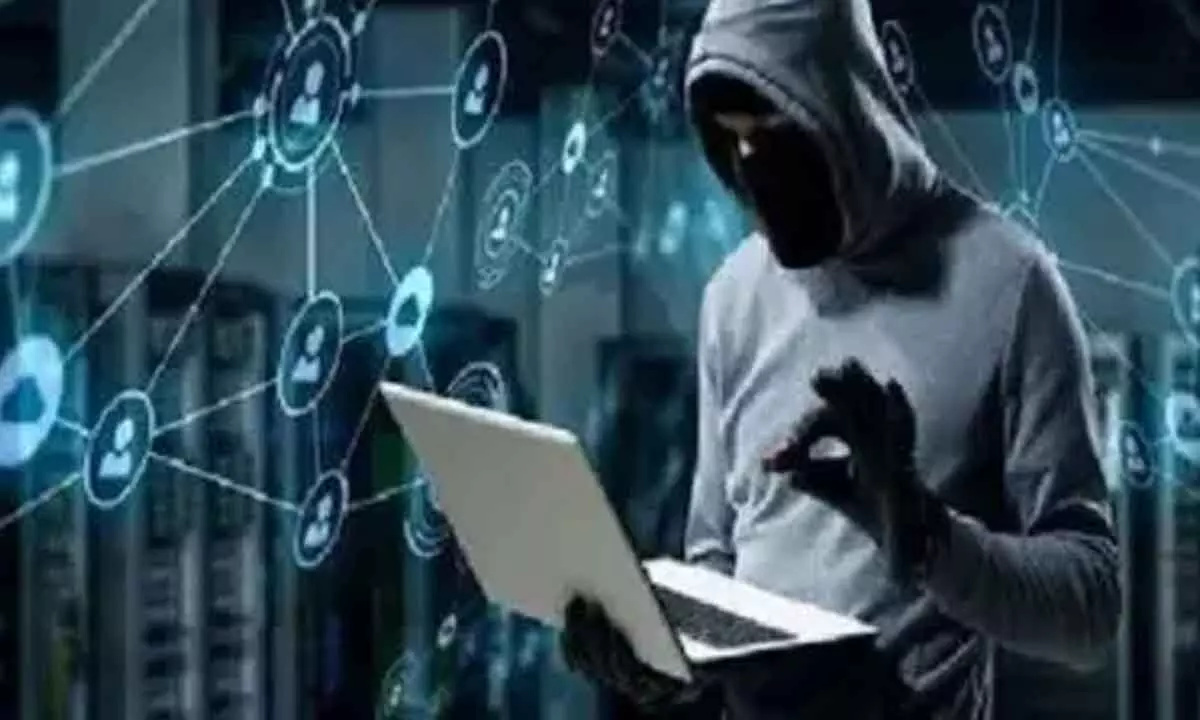Dark Web syndicates exploit AI and anonymity for cybercrime surge
Share :

In this digital era, where even a five-year-old knows how to scroll, swipe and tap, we all have accepted and adapted to modern technology. Well, when someone claims that they are tech-savvy and can deftly handle it, they often turn a blind eye to people masquerading as service providers behind the screen.
Cybercrime incidents have reached a new high in the country. In different forms that a layman cannot even think of. Emerging technologies are being extensively misused for criminal purposes like Artificial Intelligence (AI).
Now, there is a darknet (where people anonymously communicate and share files with each other) and will find various websites advertising.
The usual Google Search is not what can be used to access the part of the internet which is called the Dark Net/Web. The Web as seen by a normal user is simply the Surface Web. The Surface Web as statistics say constitutes only 5 per cent of the Internet content.
The second layer is the Deep Web which is 90 per cent of our internet usage in the form of emails, banking accounts, among others essentially specific sites protected by security firewalls, passwords etc.
Then comes the remaining 5 per cent which is the Dark Web/Net for which there are designated platforms such as The Onion Ring (TOR) , 12P for one to access and use it. It is further deep in the ocean of the internet and protected by several layers of encryption.
Concerning the dissemination of awareness regarding developments in the online world, International Commission on Cyber Security Law Chairman Pavan Duggal told IANS that he has been educating and advising the government including the Central Board of Secondary Education that we now need to incorporate cybercrime and cyber law education as a part of the school curriculum from first standard onwards.
The dark web has become a hub for illegal activities such as drug trafficking, cybercrime, and human trafficking.
According to sources, a number of criminal groups in Delhi are using the anonymity of the dark web to carry out their illegal activities. These groups are using cryptocurrencies such as Bitcoin to make anonymous transactions, making it difficult for law enforcement agencies to track them down.
Some of the most common illegal activities being carried out by these syndicates include drug trafficking, weapons smuggling, and money laundering. The dark web is also being used to sell stolen data, including credit card details and personal information.
"The right to access the internet is a part of Article 21 of the Indian Constitution and as such the Dark Web is not illegal. However, the freedom to use something does not give a free pass to do anything or any activity that is illegal," Advocate Anant Malik said.
"Though invented in the mid 1990s to shield US intelligence, the dark web is a place for illicit activities like child pornography, human trafficking, among others, and sometimes even to the extent of giving killing contracts," Malik added.
It is good to be tech-savvy in this day and age, however the propensity to explore such areas is also high and one can land in big trouble with a simple click.
Recently, a major bust was made by the Narcotics Control Bureau which seized about 15,000 LSD Blots and arrested 6 people in what was a major drug operation ring carried out on the dark web.
According to the NCB, it was the largest ever Seizure in the country over the last two decades.
"The trail to apprehend these suspects however was done through a Special Investigation Team which was adept at carrying out intensive technical and field surveillance operations through cyber patrolling of social media sites," Malik told.
Drug cartels use the Dark Net with ease in a way that there are market places from where the user can purchase the contraband without knowing or having physical contact with the vendor who can be anywhere in the world.
"The IT laws in our country need a revamp to include provisions that can regulate the dark web," opined Malik, adding that there are generic sections such as punishments for publishing obscene material, sexually explicit content, depicting children in sexually explicit act, etc, however, none that can target other criminal activities that are carried out on a large scale such as drugs and arms dealings using the Dark web.
"It is an easy way to remain anonymous and indulge in such activities and at most be charged under section 24 of the NDPS Act which is punishment for external dealings in narcotic drugs and psychotropic substances in contravention of Section 12," said Malik.
Duggal said that we need to understand that we don't have any dedicated law on cybercrime. Secondly, we won't be sought to cover some cyber crimes under the Information Technology Act 2000, and also under the Indian Penal Code.
"Number three, our laws are extremely weak when I look at them as potential response mechanisms to fighting cyber crimes," he said.
The rise of dark web syndicates in Delhi remains a major concern. The anonymity of the dark web makes it difficult for law enforcement agencies to track down those involved in illegal activities, and the use of cryptocurrencies makes it even harder to trace the transactions.
"The need of the hour is specialised committees and teams to check and ban unregulated VPN services by taking help of Section 69 of the IT Act," Malik opined.
Section 69 pf the IT Act empowers the government to issue directions for interception or monitoring or decryption of any information through any computer resource, better infrastructure in the form of cyber experts and training of the officials of the cyber cell.










